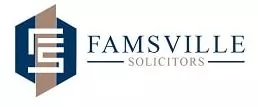On the 17th July 2021, a popular supermarket in Abuja, Next Cash and Carry located in the Kado area of the Federal Capital Territory in Abuja was gutted by fire.
This was also the fate of a popular Ebeano Supermarket, in the Lokogoma area of Federal Capital Territory (FCT) Abuja, on the 26th December 2021.
One of the most effective ways of securing your office spaces, equipment, tools as well as other office machinery is through insurance.
Insurance is a form of risk management, primarily used to hedge against the risk of a contingent or uncertain loss. It allows the insured to make claims for reimbursement as long as they are covered by the risk.
There are two parties in an insurance transaction, the insurer and the insured. The insurer is a company that underwrites an insurance risk while the insured is a person or company covered by the insurance.
This brings to reason how the law and insurance have absorbed business owners of potential losses arising from accidental fire, natural disasters such as earthquakes or floods, theft, or burglary.
The principal legislation in Nigeria that governs all insurance businesses is the Insurance Act, 2003. The Act governs insurance businesses and insurers other than insurer businesses established to collect contributions or subscriptions from its members or businesses established outside Nigeria engaged solely in reinsurance transactions.
Does the Insurance Act, 2003, provide for fire insurance?
The answer is in the affirmative. Section 2 of the Insurance Act, 2003, clearly provides for two main classes of the insurance business which are the life insurance business and the general insurance business. The general insurance business is further subdivided to include fire insurance business, and general accident insurance business among others.
Is it mandatory for owners or occupiers of public buildings to insure their Property?
Section 65(1) makes it mandatory for owners or occupiers of public buildings to insure such public buildings with a registered insurer against the hazards of collapse, fire, earthquake, storm, and flood. An occupier or owner who defaults in insuring his or her public building is liable to a fine of not more than N100,000 or imprisonment for one year or both.
A public building has been defined under the Act to include a tenement house and any building in which members of the public have ingressed and regress for obtaining educational or medical service, or for recreation or transaction of business.
The insurance policy shall cover the legal liabilities of an owner or occupier of premises in respect of loss of or damage to property or bodily injury or death suffered by a user of the premises.
How then can business owners be absorbed from loss occasioned by fire outbreaks?
A house or building insured against loss by fire will be reinstated or repaired where there is no reasonable ground to suspect that the owner, occupier, or other persons who insured the house or other building is guilty of fraud in respect of the insurance or willfully caused the fire. Section 66 of the Insurance Act.
It is also pertinent to note that an insured can elect to receive the insured sum instead of reinstatement or repairing of the insured property however, the insured claiming the insurance money shall within 60 days after the claim is agreed, give security to the satisfaction of the insurer that the insurance money shall be paid and expended for that purpose. Section 66 of the Insurance Act.
Is there any obligation imposed by law on the insurer to ensure accountability?
Yes. Section 70 of the Insurance Act imposes an obligation on the insurer to settle claims made in writing by the insured or any other party entitled to the insurance policy not later than 90 days after the issuance of a discharge voucher.
Also, where the claim remains unpaid after 90 days of the issuance of the discharge voucher, the insured may request the Commission to effect the payment from the statutory deposit of the insurer and the Commission shall have the power to effect such payment.
In the event the insurer denies liability of the claim, the insurer is statutorily required to deliver a statement in writing stating the reason for disclaiming such liability to the person making the claim or his authorized representative not later than 90 days from the date on which the person delivered his claim to the insurer.
Any insurer who contravenes this section commits an offence and on conviction is liable to a fine of N500,000.
In conclusion, it is paramount for business owners to insure their properties to mitigate potential losses arising from accidental fire, natural disasters such as earthquakes or floods, theft, or burglary.
The content of this article is intended to provide a general guide to the subject matter. Specialist advice should be sought about your specific circumstances.


